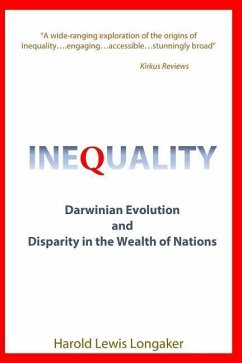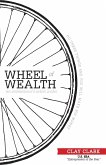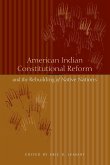The concept of equality has two edges. The first, equality under the law or equality of treatment, is a tenet of many modern liberal societies. Opposite treatment is the second edge, outcome, where inequality, not equality, is often the reality. An example is the huge disparity in the wealth of nations, with some achieving a per capita GDP in excess of $40,000, while others remain below $2,000-a twenty-fold difference. At the intersection of equality's two edges exists a belief in the psychic unity of humankind, a dogma of the social sciences. Their argument is that we were all the same when we started our migration out of Africa some 50,000 years ago and that, excluding trivial physiological changes, we have not changed significantly since. Psychologically, we are now as we were then. With this belief in hand, the social sciences have concluded that any differences observed in outcomes between people cannot be due to biology but rather must be due to other factors, such as the environment or types of governance. Going a step further, they insist that people are not to blame for their differential outcomes, and, in fact, stating any such sentiment is forbidden. Racist is the pejorative term often used for those expressing such opinions. INEQUALITY disagrees. It posits that the paradigm of psyche equality of humanity is false, and developing a Darwinian-based model supporting this argument is this book's raison d'être. Answering the question of why some nations are rich while others remain poor provides context, and this is the base question INEQUALITY addresses. It does so, but not with the usual mono-disciplined approach of comparative history, economics, environmental determinism, or other. It uniquely uses the binding thread of Darwinian Theory to stitch together bits and pieces from a broad variety of disciplines to form the whole, explanatory cloth. In doing so, it creates a holistic model of human evolution. Pointedly, the model explains how, over the past thousand years or so, differences in economic acumen between populations have arisen, accounting for much of the disparity in economic outcomes we observe today. The starting point for the model is Clark's observation in A Farewell to Alms that wealthy English testators in preindustrial England had more surviving progeny than poorer persons did. This is the classic definition of biological fitness and suggests that wealth is biologically adaptive, making it a factor in Darwinian fitness. Importantly, as Darwinian Theory predicts that fitness-enhancing, heritable traits should increase in populations, this leads to the prediction that, for certain ways of making a living or particular evolutionary environments, heritable traits promoting wealth generation will increase in populations. These traits include hard work, intelligence, and delayed gratification, among others. Humans are uniquely clever and, with our ability to form distinct cultures, have created over the recent past millennia a variety of evolutionary environments. Some forged urban centers, while others remained rural and agrarian. Some froze their tribal ways, and others adopted the modern state and its institutions. With these cultural differences and others, natural selection operating on traits promoting wealth has, over many generations, resulted in populations with differing refinements in economic acumen. Some do very well in the modern economic world; others do not. The social sciences empirically describe how we are different, but as their respective paradigms lack the foundation of modern evolutionary theory, they are unable to explain why; they can only speak to how. INEQUALITY combines the empiricism of the social sciences with Darwinian Theory to explain why we are different, and with knowledge of why, we can predict. Toward its end, INEQUALITY uses its model to examine eight major populations and finds that its model is consistent with what we observe.
Bitte wählen Sie Ihr Anliegen aus.
Rechnungen
Retourenschein anfordern
Bestellstatus
Storno








